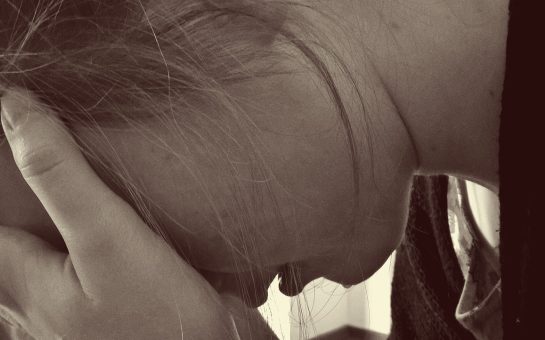Being a new mum is supposed to be a magical empowering time, full of happiness and joy welcoming a fresh arrival into the world.
But the stark reality is that an increasing number of young mums have to contend with more than sleepless nights and dirty nappies.
The dark grip of postnatal depression can make life a living hell for the women who are diagnosed with what is still a taboo condition.
Its effects not only trap new mothers in a world of fear and anxiety but spell heartbreak and misery for others living in its environment.
Mary*, 29, from Greater Manchester has spoken out about the devastating effects that Post Natal depression can have on new mothers and their families.
She first realised there was a problem about ten weeks after her son’s birth but was reluctant to share it with others.
“I became very emotional, extremely tired, scared, worried and judged amongst other things,” she said.
“I thought this was just me not fitting into the new mum role so easy.
“When my son of two-months-old wouldn’t stop crying I was that angry, my head full of every emotion, I didn’t know what to do.
“I screamed and threw his dummy across the room in complete rage. That scared me and that’s when I knew something was wrong.
Mary remains on antidepressants, nearly two years after giving birth to her son in August 2011.
She said that postnatal depression had made her feel inadequate and hopeless and that benefit from NHS support was dependent on her own willingness.
“You feel lonely, judged, a rubbish person and mother. You feel like you are living in a dark room with no way out,” she said.
“People who don’t understand it or who have never experienced it, they make you feel bad and judge you.”
However, help may be at hand with the development of a postnatal depression blood test, which could identify women at risk of the illness during pregnancy.
British doctors believe that the ground-breaking test would allow counteractive treatment to be administered before childbirth.
Professor Dimitris Grammatopoulos who led the research at University Hospitals Coventry and Warwickshire NHS Trust, said that the breakthrough was extremely important.
He said: “If you can identify woman at risk early you could treat early or introduce measures to prevent or stop the process of the disease.”
Sky News reported that the test could cost as little as £10 per screening and would potentially form part of existing NHS antenatal routines.
But an existing sufferer of the illness has reacted with caution to the news and is dubious of the necessity for early treatment.
“Would I want to know that once I gave birth to my child I was going to have a mental illness or have a higher chance of one?” Mary asked.
“This could make you paranoid during pregnancy.”
She added: “The tests could show that you are of high risk, so you start taking antidepressants before you are even suffering from it.
“How would you know if you actually needed the medication in the first place? It’s only masking it not curing it.
“How would health advisors know how many people actually suffer from postnatal depression to those who are just taking a potentially addictive drug on the off chance?”
Around one in seven woman in the UK suffers from postnatal depression in the first three months after giving birth – about 90,000 cases per year.
The effects can be wide ranging but in the most severe cases it can result in new mothers harming their baby or even committing suicide.
Mary said: “I have had counselling, a family support worker comes to help me get out and access groups in the area.
“Someone comes once a week to help with the housework. I have been to support classes with other mums who suffer from PND.
“This is all helps, but only if I’m willing to put the effort in.
“Some days are good and I have the energy to run a marathon but others I find it so hard to get out of bed and couldn’t think of anything worse than leaving the house.”
Professor Grammatopoulos’ research, which has been published in the current edition of the Journal of Psychiatric Research, found two molecular ‘signatures’ in the genes that increase the risk of postnatal depression by up to five times.
The study believes that changes in oestrogen levels during pregnancy make woman more prone to the effects of the stress hormone cortisol.
But the NHS’ own website says that the notion of postnatal depression being entirely caused by hormonal changes is a myth.
It says that the illness is caused by many different factors and is just as serious as other forms of depression.
Mary believes that readily available information and early monitoring by a health professional are the best ways to deal with the illness.
She said: “The midwife or doctor should be allowed to assess woman after a month or two to see if they have any symptoms or are suffering from PND.
“You have all the information you will ever need about pregnancy and giving birth but not all that much information at hand about the after effects that can happen.
“As a first time mum, I didn’t have a clue. I was so scared and didn’t want to tell anyone how I was feeling in case they thought I was a rubbish person or that someone would come and take my son away from me.”
The NHS provides more information on Post Natal Depression, including symptoms and current treatment, on their website.
For more information on postnatal depression click here.
*Name had been changed to protect identity.
Image courtesy of ladynow via Flickr, with thanks.
For more on this story and many others, follow Mancunian Matters on Twitter and Facebook.



